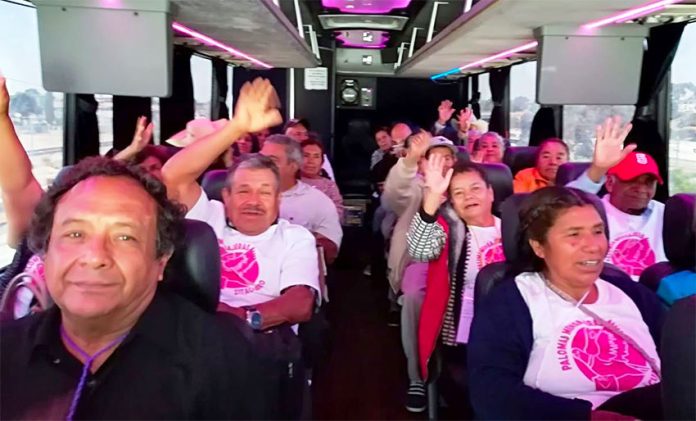The Michoacán government is on the verge of distributing travel visa No. 10,000 in a 3-year-old program that reunites residents of that state with their family members in the United States.
Governor Silvano Aureoles told a press conference this week that the Palomas Mensajeras (Messenger Pigeons) program – a collaboration between Michoacán authorities and the U.S. Department of State – has benefited people in 95 of the state’s municipalities and that the aim is to reach residents of all 113 municipalities.
Under the program, the government covers visa and travel expenses so that mainly older adults can visit the United States to see their children, who migrated to the U.S. as long as 30 years ago but remain undocumented there. In some cases, the beneficiaries of the scheme have the opportunity to meet their grandchildren face-to-face for the first time ever.
“We are close to reaching visa number 10,000. It’s so important that the link with family members not be broken,” Aureoles said.
The governor said that 70% of the beneficiaries of the Palomas Mensajeras scheme have been women and that 30% of the total have come from indigenous communities.
“We’re talking about one of the most humanistic programs of the state government because it unites families, it allows them to meet again,” Aureoles said.
Imelda Gil, a beneficiary of the program in 2019, told the broadcaster CGTN that being able to travel to the United States to see her daughter who left Michoacán 20 years ago was “a dream come true.”
Reunited with her mother in the U.S., Isabel Gil said that “it’s been very hard being apart.”
“I’ve had three kids here and I don’t have my mother with me so it’s been very hard. Our family events and traditional celebrations all take place away from my homeland. … I was longing to see my mother. I’d like many other people to experience this. Few people get the opportunity to see their parents again, it’s wonderful,” she said.
Back in Michoacán, Aureoles pointed out that migration to the United States has been occurring for some 150 years.
“It’s not a recent thing,” he said, adding that numbers spiked during World War II when the United States invited Mexicans to work there because its workforce was depleted as a result of men traveling abroad to fight.
There are currently some 4.6 million Michoacán natives living in the United States, and in 2019 they sent almost US $3.6 billion home in remittances.
Aureoles said that the money supports both families and communities, explaining that it is invested in businesses and used to complete small infrastructure projects, such as roadwork and repairs to schools and churches.
Source: Mi Morelia (sp), Quadratín (sp)
